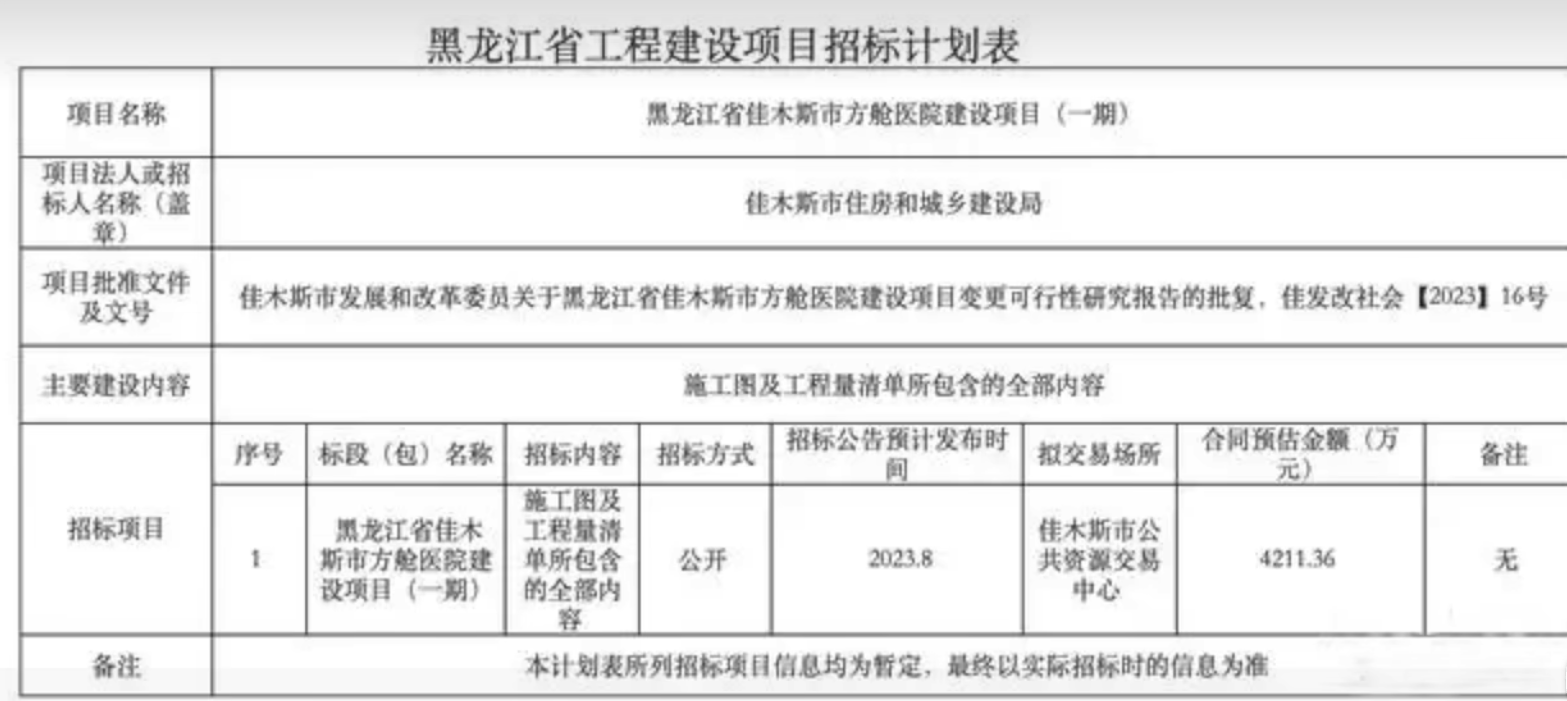Event
Fangcang hospital (a type of temporary cabin hospital that was constructed in large numbers in China during the COVID-19 pandemic) construction reported in Jiamusi:
On August 1, residents of Jiamusi city, Heilongjiang province, discovered that a Fangcang hospital was being built nearby. A signboard at the construction site read, "Pre-Approval Public Notice for Phase One of the Fangcang Hospital Construction Project in Jiamusi City, Heilongjiang Province." The construction agency is the Jiamusi City Housing and Urban-Rural Development Bureau, with a bidding budget of over 42 million yuan (6 million USD). Local authorities said that the construction might have been registered before the pandemic ended, and since the funds have already been allocated, they have no choice but to build it.

Analysis
The decline of the Northeast of China's economy is largely due to excessive bureaucracy in government operations. Based on my conversations with some Northeast business owners, this money must have been approved during the pandemic and after a year or two of procedural formalities, it must be spent according to the documents. Although everyone (including officials) knows this is unreasonable, the primary responsibility of officials is to execute orders, not serve the people. So, to protect their own job, they must follow through with the project or if it is a problem of attitude.
If this money is not used for this purpose, it must be re-applied and go through the process again. If higher-ups or other leaders find out the project hasn't started, they might be held accountable. This could be time-consuming and could affect the officials' reputation with their superiors. So regardless of actual needs, everyone just moves forward blindly. Even if seeds meant for spring planting are sown in winter due to procedural delays, officials will still plant them, even if they will all die.
Why does this only happen in the economically underdeveloped Northeast of China? Precisely because of the economic downturn (don't bring up how the Northeast was wealthy due to its heavy industry, because the decline was inevitable once steel plants was no longer a national priority in the 1980s), state-owned enterprises, with great power, grew larger and larger, and gradually taking away the market share of private enterprises. When most people don't want to innovate, regional management will inevitably gravitate towards a one-size-fits-all approach (a system used from 1958 to 1978, that gives people food and wage regardless of their performance): in order not to be kicked out of the group, people aim not to make mistakes, strictly following old documents to do what they think is "right."
This teaches us several conclusions:
- In China, one may not be competent, but one's attitude must be correct! After all, even the emperor is dull, he only likes those who follow his orders!
- It confirms that power is only accountable to its source.
- In a country where the system for evaluating officials is extremely rigid, officials who want to rise must be responsible for procedures and doing what is "correct", regardless of whether it's just, efficient, or conscionable.
- One consequence of the abundance of grey areas in the Chinese official system is that most officials (those without a good background or without any connections in superior groups) spend their entire lives seeking only to avoid mistakes, not to achieve anything. In the face of any project, as long as they're not blamed, no matter how absurd, they still will actively execute the orders: it's an outcome of any rational officials since it’s the “Nash Equilibrium” of their self-interest game.
